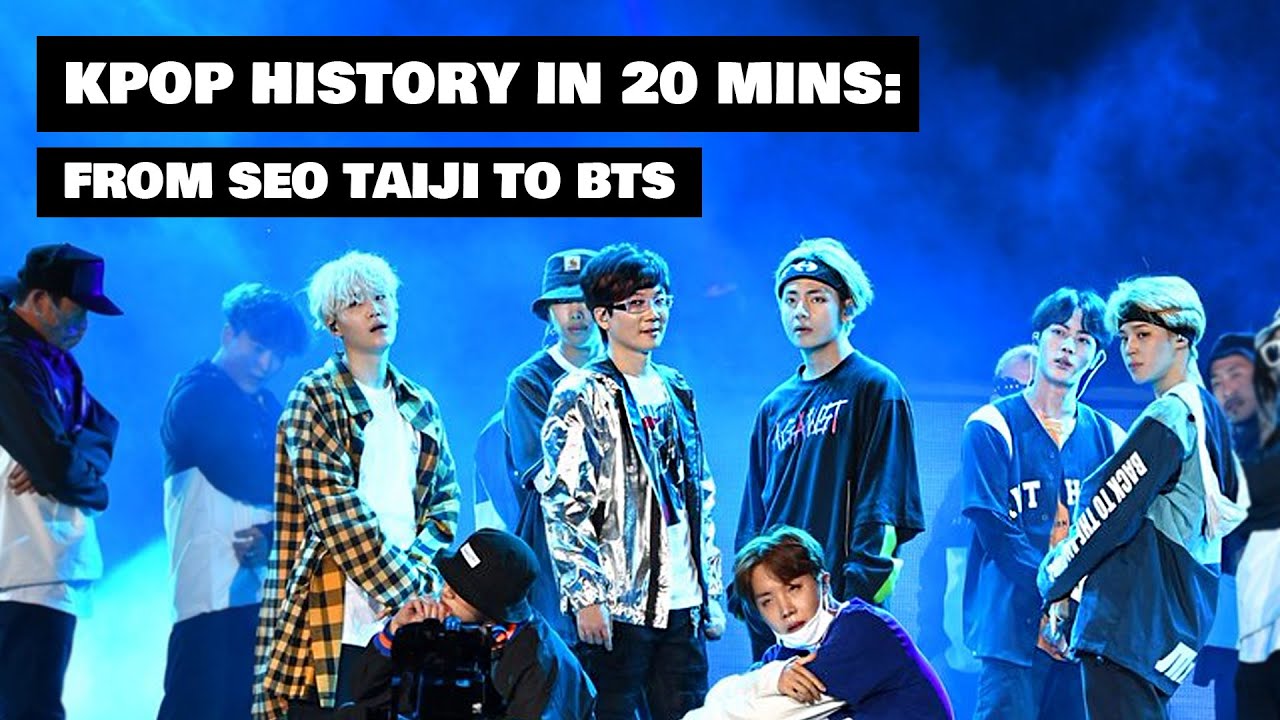K-Pop Goes Global
Summary
TLDRThe video explores the evolution of K-Pop from its challenging beginnings during the 1997 economic crisis in Korea to its global phenomenon status today. Key figures like Joon and Bernie highlight the resilience of the industry and its eventual focus on international markets, especially Japan. The rise of iconic groups, such as the Wonder Girls, reflects a blend of nostalgia and innovation, while Psy's 'Gangnam Style' epitomizes the power of viral culture. The K-Pop industry's economic impact and the fervent dedication of its fans underscore its transformation into a major player in global music.
Takeaways
- 🌍 Joon moved to Korea in 1997 with aspirations to succeed in music, but faced challenges due to the IMF crisis.
- 💔 The IMF severely impacted the Korean economy, leading to widespread bankruptcies and a decline in the music industry.
- 🎤 The late 90s and early 2000s marked a pivotal moment for K-Pop as the industry sought to expand globally, especially towards Japan.
- 🎶 BoA was a significant figure in K-Pop's international success, mastering Japanese to connect with audiences in Japan.
- 🌊 Hallyu, or the Korean Wave, represents the spread of Korean culture and music beyond Korea, influencing global pop culture.
- 👑 The Wonder Girls achieved massive popularity in Korea, but their attempt to break into the U.S. market faced challenges.
- 💃 Dance and visual elements play a crucial role in K-Pop's appeal, creating viral trends that enhance global reach.
- 📈 The accessibility of the internet and technology contributed to K-Pop's growing international audience in the late 2000s.
- 🌟 PSY's 'Gangnam Style' became a global sensation, showcasing how K-Pop can achieve massive success through social media.
- 🎉 K-Pop has evolved from being seen as a passing trend to a recognized global phenomenon, generating substantial economic impact.
Q & A
What prompted Joon to fly to Korea in 1997?
-Joon flew to Korea in 1997 with aspirations to form a music group and achieve success in the K-Pop industry.
What was the impact of the IMF crisis on the Korean economy and music industry?
-The IMF crisis severely affected the Korean economy, leading to widespread bankruptcies and a significant downturn in the music industry, making it challenging to monetize music.
How did the IMF crisis force a change in the K-Pop industry?
-The crisis compelled the music industry to rethink its strategies, focusing on expanding beyond the Korean market to find new opportunities for success.
What role did BoA play in the expansion of K-Pop into Japan?
-BoA was instrumental in K-Pop's expansion into Japan by mastering the Japanese language, which allowed her to connect with Japanese audiences effectively.
What does the term 'Hallyu' refer to?
-Hallyu, or the Korean Wave, refers to the growing global influence of Korean culture, including K-Pop, dramas, and other cultural exports.
How did the Wonder Girls contribute to the K-Pop landscape?
-The Wonder Girls were a prominent girl group in Korea, known for their catchy music and performances, which helped to popularize K-Pop both domestically and internationally.
What challenges did the Wonder Girls face in trying to break into the U.S. market?
-The Wonder Girls faced criticism for their focus on the U.S. market, which some considered a failure due to the lack of long-term traction in America.
How did social media and technology influence the rise of K-Pop?
-The rise of social media and accessible technology allowed K-Pop to reach global audiences quickly, facilitating viral trends and fan engagement.
What was the significance of PSY's 'Gangnam Style' in K-Pop's global success?
-PSY's 'Gangnam Style' became a global phenomenon, showcasing K-Pop's potential for mainstream success and highlighting the power of viral marketing through platforms like YouTube.
How has the perception of K-Pop changed over the years?
-K-Pop has transitioned from being viewed as a passing fad to being recognized as a significant global musical phenomenon, with substantial economic impact.
Outlines

This section is available to paid users only. Please upgrade to access this part.
Upgrade NowMindmap

This section is available to paid users only. Please upgrade to access this part.
Upgrade NowKeywords

This section is available to paid users only. Please upgrade to access this part.
Upgrade NowHighlights

This section is available to paid users only. Please upgrade to access this part.
Upgrade NowTranscripts

This section is available to paid users only. Please upgrade to access this part.
Upgrade Now5.0 / 5 (0 votes)





